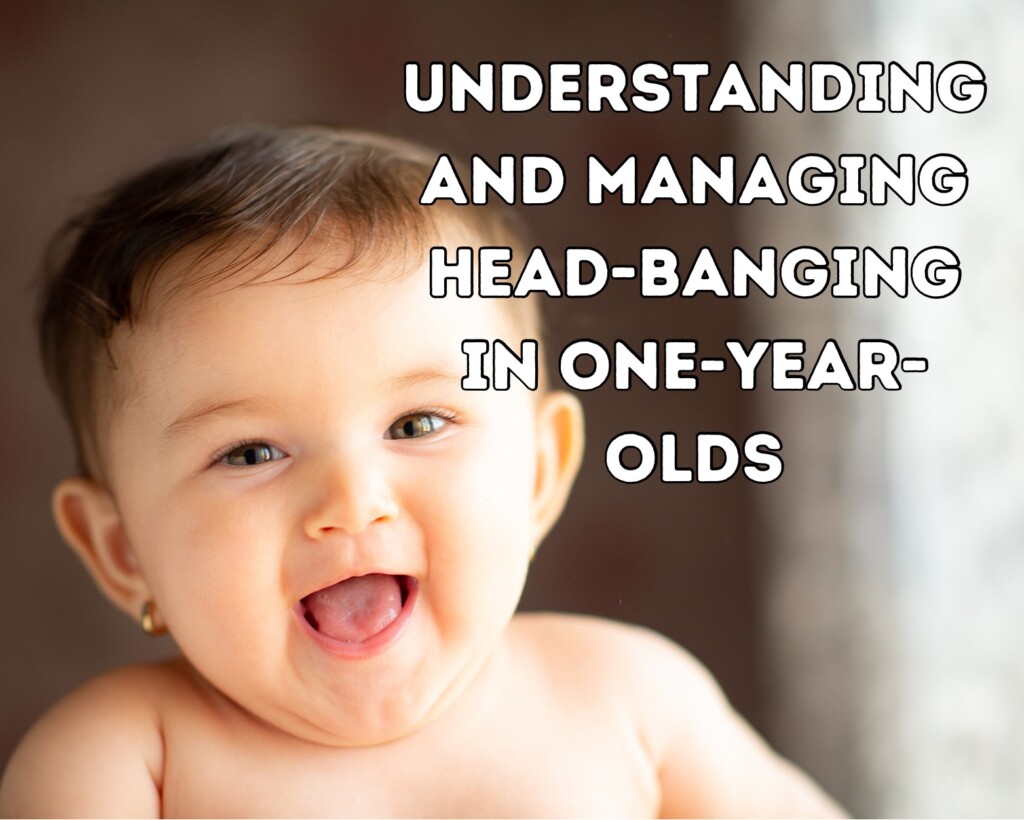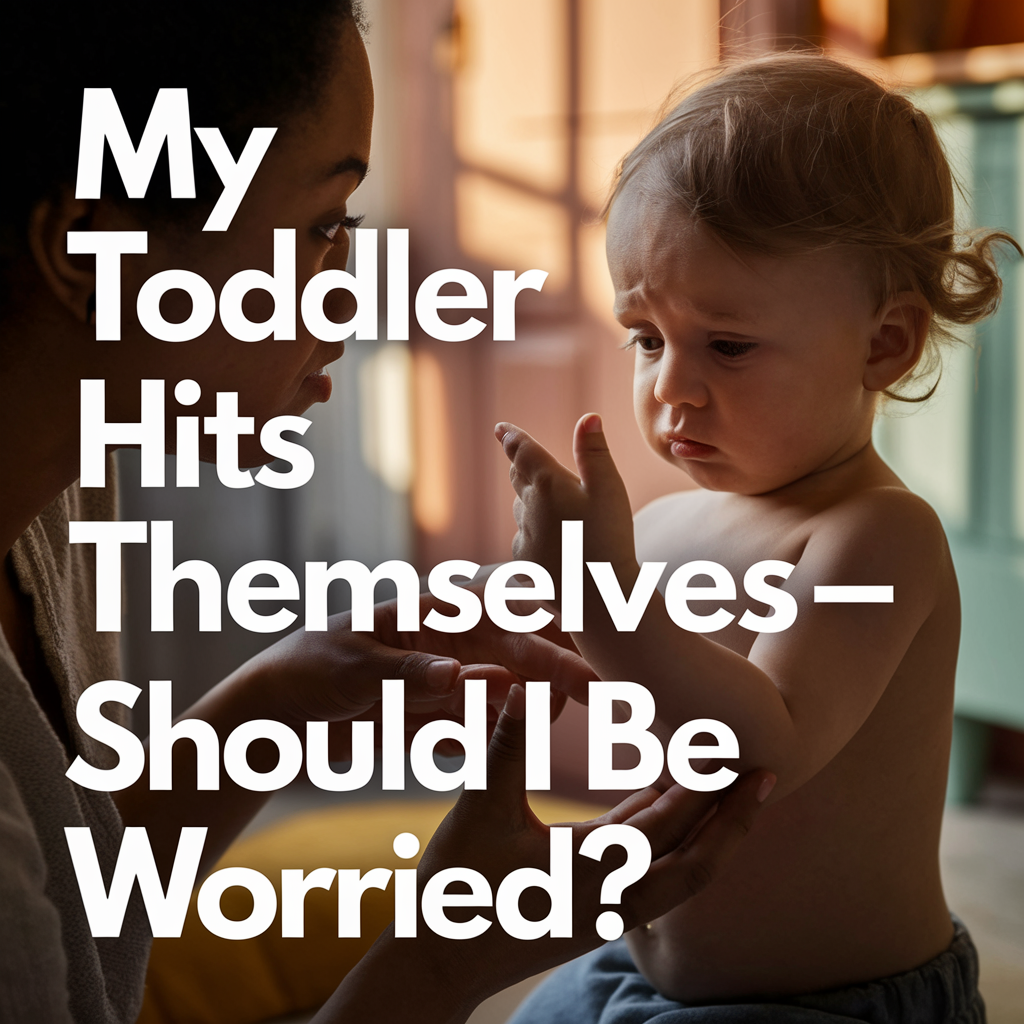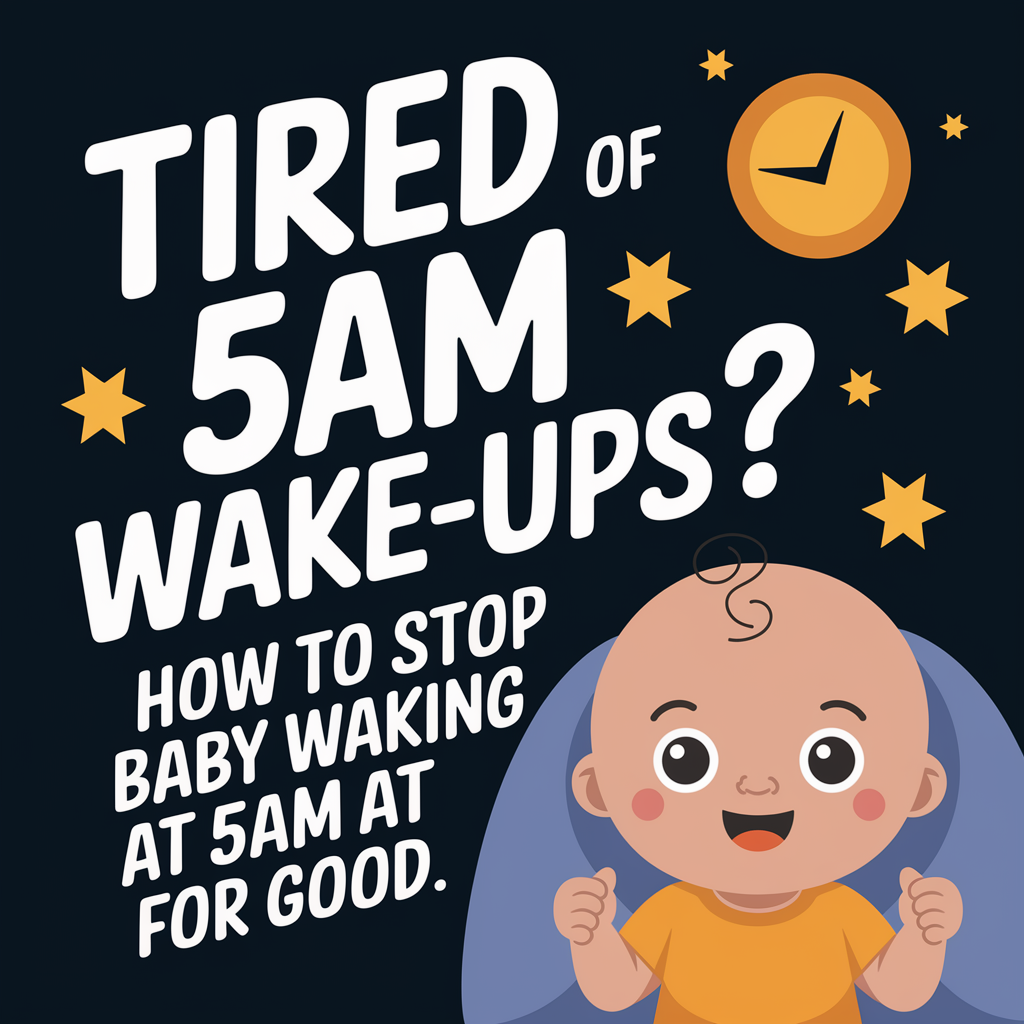The Curious Case of Toddlers Hitting Their Heads
It’s not uncommon for parents to observe their one-year-old children occasionally hitting their heads against the wall or other surfaces. This behavior can be alarming, but it’s often a part of normal toddler development. Understanding why it happens and how to manage it is crucial for concerned parents.
Why Do Toddlers Hit Their Heads?
Exploring Sensory Feedback
At one year old, children are exploring their bodies and the world around them. Head-banging can be a way for toddlers to discover how their bodies work and react to different stimuli.
Self-Soothing Mechanism
Some toddlers use head-banging as a way to self-soothe, especially when they’re tired, frustrated, or upset. The rhythmic motion can be calming for them.

Attention-Seeking Behavior
Occasionally, toddlers might bang their heads to get attention from their parents, especially if it elicits a strong reaction.
A Sign of Frustration or Anger
Toddlers have limited ways to express complex emotions. Head-banging might occur out of frustration or anger when they can’t communicate their needs or feelings.
Is Head-Banging Normal?
Head-banging is a behavior seen in many toddlers and is generally considered a normal part of development. However, it’s important to monitor the frequency and intensity of the behavior. If it occurs frequently or violently, it might be a sign to consult a pediatrician.
What Can Parents Do?
Create a Safe Environment
Ensure the child’s play area is safe. Remove hard or sharp objects and consider adding soft padding to areas where the child frequently bangs their head.
Observe and Understand Triggers
Pay attention to when and why your child engages in head-banging. Understanding the triggers can help in addressing the underlying issues.
Offer Comfort and Distraction
When your child starts to bang their head, try to comfort them or distract them with a toy or activity. Sometimes, simply holding them and providing reassurance can be enough.
Avoid Reinforcing the Behavior
Try not to overreact to the head-banging, as this can sometimes reinforce the behavior. Instead, respond calmly and gently.
Consistent Bedtime Routine
If head-banging is a self-soothing behavior, a consistent bedtime routine can help your child relax and fall asleep more easily.
Consult a Pediatrician
If you’re concerned about the behavior or if it becomes more frequent or intense, it’s always a good idea to talk to a pediatrician for guidance.

Navigating a Phase of Growth
While it can be worrying to see your child hitting their head, it’s often a phase that they outgrow with time. By understanding the reasons behind it and responding appropriately, parents can help their children navigate this stage safely and with less anxiety. Remember, every child is different, and what worked for an older sibling might not be the same for the younger one. Patience and understanding are key.
At what age should I be concerned about head-banging behavior?
Head-banging typically occurs in toddlers between 1 and 3 years old. If this behavior continues beyond the age of 3, or if it starts suddenly in an older child, it may be worth discussing with a pediatrician.
How can I differentiate between normal head-banging and something more serious?
Normal head-banging is usually rhythmic and occurs for short periods. If the behavior is violent, causes injury, disrupts daily activities, or is accompanied by developmental delays or other concerning behaviors, it’s important to seek medical advice.
Could head-banging be a sign of autism or other developmental disorders?
While head-banging can be a behavior seen in children with autism or other developmental disorders, it is also common in many typically developing children. If head-banging is accompanied by other signs of developmental delays, consult a pediatrician for an evaluation.
Is it possible to prevent head-banging?
Completely preventing head-banging can be challenging since it’s a normal behavior for many toddlers. However, creating a safe environment and addressing underlying issues like frustration or the need for attention can reduce the frequency.
How should I react when my child starts banging their head?
Stay calm and avoid overreacting. Offer comfort, distraction, or attention to your child. If the behavior seems to stem from frustration, try to help them express their feelings in other ways.
Can head-banging cause brain damage?
In most cases, toddlers don’t hit their heads hard enough to cause brain damage or serious injury. They typically instinctively limit the force of the impact. However, if you’re concerned about the intensity of the head-banging, consult a pediatrician.
Should I restrain my child to stop them from head-banging?
Physical restraint is not usually recommended as it can increase frustration and distress. Instead, focus on creating a safe environment and using distraction or comfort strategies.
Can head-banging be a sign of pain or discomfort?
Sometimes, head-banging can be a response to pain, such as teething or ear infections. If you suspect your child is in pain, especially if they show other signs of discomfort, consult a healthcare provider.
Understanding and Responding to Head-Banging
Head-banging in toddlers is often a phase that passes with time. By understanding the behavior and responding appropriately, parents can help their children navigate this stage safely. Always trust your instincts as a parent, and if you have concerns, don’t hesitate to seek professional advice.
As an Amazon Associate we earn from qualifying purchases through some links in our articles.



